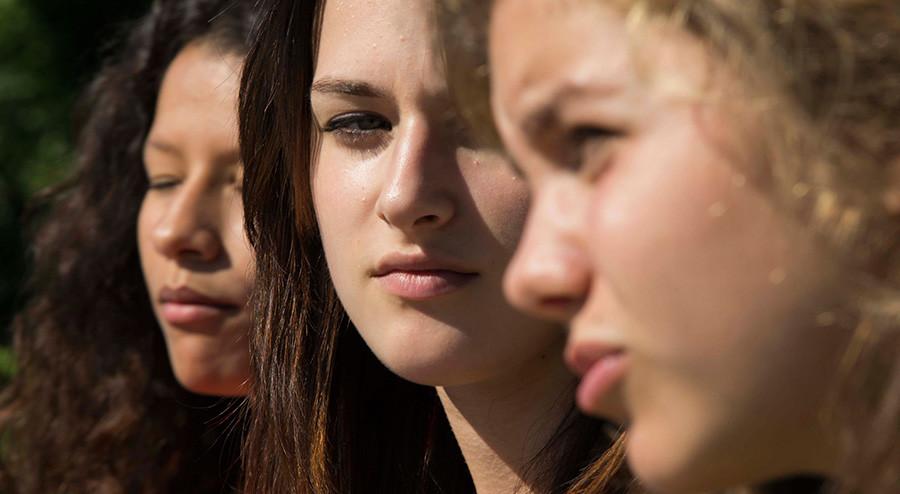‘Being 14’ not as innocent as it seems
Najaa Bensaid, Athalia Routier and Galatéa Bellugi, left to right, star in “Being 14.”
April 22, 2015
The 1995 trailer for Larry Clark’s “Kids” begins with the quote, “Do you know where your children are?,” igniting a widespread realization that no one really knows or understands what teens are doing behind their parents’ backs. Premiering at this year’s Tribeca Film Festival, “Being 14” is the feature debut from French director Hélène Zimmer that portrays a similarly realistic perspective of youth. From underage drinking to foul language, “Being 14” portrays a real and slightly horrifying picture of being young and confused.
Told from a female perspective, “Being 14” offers a tinge of nostalgia for a time in life when even the smallest things seem to matter: the gossip, the parties, the rude boys and the petty fights. The film, shot in a style similar to a documentary, follows Jade (Galatéa Bellugi), Sarah (Athalia Routier) and Louise (Najaa Bensaid) during their last year of middle school before making the quasi-leap into high school and embarking on adulthood.
What is beautiful and surprising about this unsettling portrayal of being a young woman is how far writer and director Zimmer goes without going too far. There is no nudity, yet the foul language alone earned it a much-deserved NC-17 rating. These girls do not hold back, with friends, family or even strangers. They are fiery and fierce in a strangely empowering way.
“Being 14” is an intensely fueled ride down memory lane. Though set in modern day France, the behavior of these girls is strikingly familiar, between skipping school, hanging out under the bleachers, and yelling at their absent yet loving parents. However, the film becomes disturbing in how truthfully it is told.
At the beginning of the film, Sarah excludes Jade, one of the youngest and most innocent of the girls. From then on, she and Sarah do not get along and call each other names at school. However, toward the end of the film, Jade puts aside their differences and lets Sarah into a high school party. Though the film drags in parts, it paints a naturalistic picture of growing up and trying to fit in, while tackling themes of development and adversity.
The performances in “Being 14” are sincere and enjoyable. Routier, Bellugi and Bensaid portray modern teens in an enlightening and genuine way. By highlighting familial difficulties involving step-parents and absent mothers, Zimmer does not limit the perspective to just teens versus teens but rather adolescence in the scope of the society around them. “Being 14” succeeds in capturing all of the subtleties of being a young woman during an ephemeral time, even though its truthful nature may be difficult to watch.
A version of this article appeared in the Wednesday, April 22 print edition. Email Sidney Butler at [email protected]



























































































































































